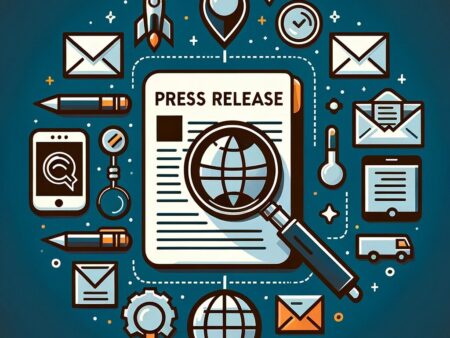Understanding ChatGPT
In the ever-evolving landscape of technology and education, ChatGPT emerges as a pivotal innovation, blending artificial intelligence with the art of language and conversation. This section delves into the essence of ChatGPT, exploring its capabilities and limitations, to offer a comprehensive understanding of its role in academic writing and beyond.
What is ChatGPT?
ChatGPT, developed by OpenAI, is a state-of-the-art language generation model designed to understand and generate human-like text based on the input it receives. It’s part of the GPT (Generative Pre-trained Transformer) series, which represents a breakthrough in AI’s ability to process and produce language. ChatGPT has been trained on a diverse range of internet texts, enabling it to respond to queries with responses that can mimic human writing styles across various genres and topics.
This advanced model is capable of engaging in conversations, answering questions, summarizing texts, and even generating content that spans essays, reports, stories, and more. Its design is rooted in learning from vast amounts of text data, allowing it to grasp context, infer meanings, and produce coherent and contextually relevant responses.
Capabilities
ChatGPT’s capabilities are vast and versatile, making it a valuable tool in numerous fields, including education, customer service, content creation, and programming. In the context of essay writing, ChatGPT can:
- Generate Ideas: It can help brainstorm topics, outline potential structures, and suggest content ideas.
- Research Assistance: While ChatGPT doesn’t browse the internet in real-time, it can provide summaries and explanations based on its pre-training data, offering a starting point for research.
- Writing and Editing Help: ChatGPT can draft sections of text, offer suggestions for improvement, and help refine the voice and style of a piece.
- Learning and Tutoring: It can explain concepts, answer questions, and provide examples to help students learn and understand various subjects.
Limitations
Despite its impressive capabilities, ChatGPT’s use in academic writing comes with notable limitations:
- Accuracy of Information: Since ChatGPT’s knowledge is based on data up to its last training update, it may not have the most current information or might produce outdated references.
- Understanding Complex Instructions: While adept at handling a wide range of requests, ChatGPT might struggle with very complex or niche academic topics that require specialized knowledge.
- Originality and Plagiarism: While ChatGPT generates text based on patterns learned during training, ensuring the originality of content and avoiding inadvertent plagiarism requires careful oversight.
- Ethical and Academic Integrity: Relying on AI for essay writing raises questions about the authenticity of the work and the student’s understanding of the subject matter.
Understanding ChatGPT’s capabilities and limitations is crucial for leveraging its strengths while navigating the challenges it presents. As AI continues to integrate into educational tools, discerning its proper role and application in academic writing remains a pivotal consideration for students and educators alike.
Pros of Using ChatGPT for Essays
The integration of ChatGPT into the essay-writing process offers several advantages, from streamlining research to fostering creativity and enhancing writing proficiency. Here’s a closer look at the benefits:
Enhancing Research
ChatGPT can significantly augment the research phase of essay writing. Although it doesn’t access real-time internet data, its vast database of pre-existing knowledge serves as a valuable starting point for gathering information on a wide array of topics. It can summarize key concepts, explain complex ideas, and provide a broad overview of subjects, helping students to quickly grasp foundational information which can then be further explored through traditional research methods.
Idea Generation and Brainstorming
One of the most daunting aspects of writing an essay can be starting it. ChatGPT excels in sparking creativity and assisting with idea generation. By inputting a general topic or question, students can receive numerous suggestions for essay themes, potential thesis statements, and different angles to explore. This brainstorming aid can be particularly beneficial in overcoming writer’s block and ensuring a strong, creative start to the essay-writing process.
Improving Writing Skills
ChatGPT can act as a writing tutor, offering suggestions for improving grammar, syntax, and style. Its ability to generate text in various styles and tones allows students to learn by example, enhancing their understanding of good writing practices. Furthermore, by analyzing and editing drafts written with ChatGPT’s assistance, students can identify areas for improvement in their writing, leading to skill development over time.
Cons of Using ChatGPT for Essays
While ChatGPT offers numerous benefits, there are also drawbacks and ethical concerns to consider, especially in the context of academic writing.
Ethical Considerations
The use of AI in writing academic essays raises significant ethical questions. Relying heavily on ChatGPT for content creation might lead to concerns about the authenticity of the work and whether it truly reflects the student’s knowledge and capabilities. It’s essential to use ChatGPT as a tool for assistance rather than a substitute for personal intellectual effort, ensuring that the final work remains an original creation of the student.
Academic Integrity Concerns
Closely related to ethical considerations are issues of academic integrity. Educational institutions require essays to be the original work of the student, and using ChatGPT to write substantial parts of an essay could be considered plagiarism if not properly disclosed. It’s crucial for students to understand their school’s policy on AI-generated content and to use ChatGPT in a way that supports learning and integrity.
Limitations in Understanding and Creativity
Despite its advanced capabilities, ChatGPT has limitations in understanding context, nuance, and the depth of certain academic subjects. It may not capture the subtleties of complex arguments or provide the critical analysis expected at higher levels of education. Additionally, because it generates responses based on patterns in data, there’s a risk that essays might lack the original thought and creativity that educators value. It’s important for students to critically assess and supplement the content produced by ChatGPT to ensure it meets the academic standards of their institution.
In summary, while ChatGPT can be a valuable asset in the essay-writing process, offering numerous benefits, it’s essential to navigate its use carefully, considering the ethical implications and potential limitations. By using ChatGPT judiciously, students can leverage this technology to enhance their learning experience while maintaining academic integrity and fostering personal growth.
Balancing AI Assistance with Learning
Incorporating artificial intelligence, like ChatGPT, into the educational process opens up a world of possibilities for enhancing learning and academic writing. However, it’s crucial to maintain a balance between leveraging AI for assistance and ensuring that learning remains a deeply personal and intellectually engaging process. This balance is key to maximizing the benefits of AI while nurturing the development of critical thinking and writing skills.
The Importance of Personal Effort
Personal effort in learning and essay writing cannot be overstated. It’s the cornerstone of academic growth, fostering a deep understanding of subjects and honing one’s ability to think critically and creatively. While ChatGPT can provide support in various stages of essay writing, from research to idea generation and even improving writing skills, it’s important that students engage actively with the material and contribute their own insights and analyses. This engagement ensures that the educational experience remains enriching and that students develop the skills necessary for academic and professional success.
Using AI as a tool rather than a crutch encourages students to delve deeper into topics, question assumptions, and build upon the ideas generated by AI with their own original thought. It’s through this personal effort that students truly learn and grow.
Integrating ChatGPT Responsibly
To integrate ChatGPT responsibly into the learning and essay-writing process, students and educators should consider the following strategies:
- Supplemental Use: Treat ChatGPT as a supplementary tool to aid in the learning process. It should support, not replace, traditional research methods, critical thinking exercises, and the development of writing skills.
- Critical Evaluation: Encourage students to critically evaluate the information and suggestions provided by ChatGPT. This practice not only enhances critical thinking skills but also ensures that the final essay reflects the student’s understanding and perspective.
- Creative Input: Students should be encouraged to add their creative input and personal voice to any content generated by ChatGPT. This approach helps maintain the authenticity of their work and fosters a sense of ownership over the learning process.
- Ethical Considerations: It’s essential to discuss and adhere to ethical guidelines regarding the use of AI in academic settings. This includes understanding what constitutes plagiarism and how to properly cite and acknowledge AI-assisted work.
By emphasizing the importance of personal effort and integrating ChatGPT responsibly into the educational toolkit, students can harness the power of AI to enrich their learning experience while maintaining the integrity and authenticity of their academic work. This balanced approach not only prepares students for success in their current studies but also equips them with the skills and ethical understanding necessary for lifelong learning and professional development.
Guidelines for Using ChatGPT for Essays
As ChatGPT becomes an increasingly popular tool among students for essay writing, establishing clear guidelines for its use is paramount. These guidelines are designed to help students leverage ChatGPT effectively while adhering to ethical and academic standards. By following best practices and understanding the importance of navigating these standards, students can enhance their learning experience and produce work that is both authentic and reflective of their capabilities.
Best Practices
1. Use ChatGPT as a Brainstorming Tool: Start by using ChatGPT to generate ideas, themes, and outlines for your essays. This initial step can provide a broad range of perspectives on your topic, which you can then narrow down based on your interests and assignment criteria.
2. Supplement Research with Credible Sources: While ChatGPT can offer summaries and explanations based on its training data, it’s crucial to supplement this information with research from credible sources. Always verify facts and data through academic journals, books, and reputable websites.
3. Enhance Drafts with Personal Insight: After using ChatGPT to help draft sections of your essay, go through each part to add your personal insight and analysis. This step ensures that your essay reflects your understanding and critical thinking on the subject.
4. Review and Revise: Use ChatGPT as a tool for revising drafts by checking for grammar and stylistic improvements. However, make sure to critically assess any changes suggested by ChatGPT to ensure they align with your essay’s tone and objectives.
5. Maintain a Balance: Remember that the goal of using ChatGPT is to aid your essay writing process, not to replace your input and effort. The most valuable essays are those that showcase your unique perspective and skills.
Navigating Ethical and Academic Standards
1. Academic Integrity: Be transparent about the use of AI tools like ChatGPT in your essays, especially if your institution requires disclosures regarding the use of such technologies. Understand and adhere to your educational institution’s policies on academic integrity and plagiarism.
2. Originality: Ensure that the final essay is predominantly your work. While ChatGPT can assist in generating content, the thoughts, analysis, and critical insights should be your own to maintain the originality of the essay.
3. Citation and Attribution: If you incorporate specific ideas or phrases generated by ChatGPT into your work, consider how these should be cited. While the current academic standards for citing AI-generated content are evolving, it’s essential to err on the side of caution and transparency.
4. Ethical Use: Reflect on the ethical implications of using AI in your academic work. Consider the purpose of the assignment and ensure that your use of ChatGPT aligns with the goals of enhancing your learning and understanding of the topic.
By adhering to these guidelines for using ChatGPT for essays, students can responsibly take advantage of the benefits AI offers for academic writing. These best practices and ethical considerations ensure that the incorporation of AI tools enriches the educational process, supporting students’ growth as scholars and individuals.





